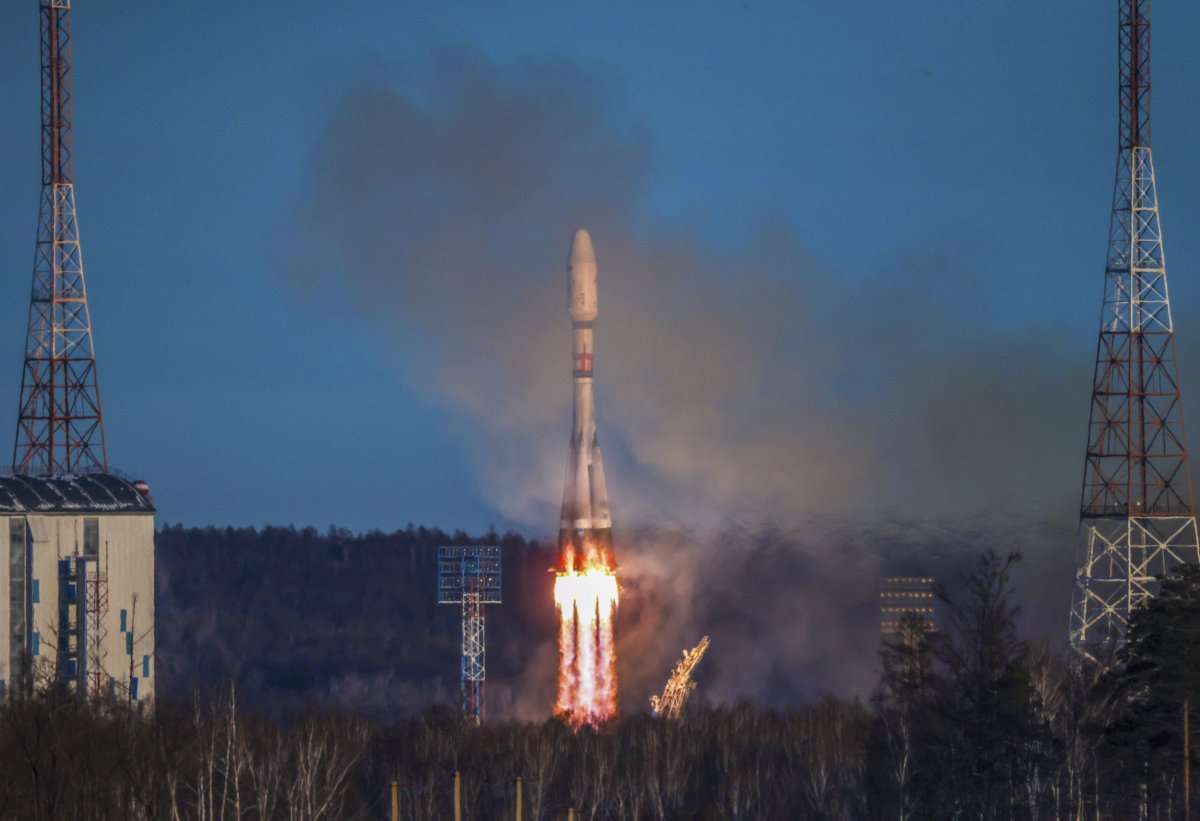Iran has joined the space race alongside the U.S., China, and Russia as the country launched the first privately developed satellites into space, marking its entrance into the world of space exploration, according to the Tehran Times.
The privately developed satellites Kowsar and Hodhod were launched into orbit on Tuesday on a Russian rocket, the Soyuz, which was also carrying two Russian Ionosphere-M Earth observation satellites and others, according to The Associated Press.
The launch of the satellites on a Russian rocket also signifies the growing relationship between the two countries.

Newsweek has reached out to the Iranian Space Agency for comment via email.
Faghih Imani, the CEO of the company behind the creation of the satellites said that the development process took 15 years, saying, "This is only the beginning for us, we are only going forward from here."
The high-resolution sensing Kowsar satellite, with a life span of three and a half years, is aimed at being used for agriculture, natural resource management, environmental monitoring, and disaster response.
The Hodhod satellite, while smaller, is used for communications aimed at supporting agriculture, as well as transportation, logistics, and environmental monitoring by improving satellite communications networks.
Although this is not the first time Iran has launched satellites into space, it is the country's first time doing so through the private sector.
A Russian rocket also launched an Iranian satellite, Khayyam, in 2022, and sent Pars-1, another Iranian satellite, into space in February.
The country also launched a research satellite, Madha, earlier this year, and used its own vehicle launcher called Simorgh.
The successful launch of Madha into space followed five failed launches by Simorgh previously.
Describing the launch of the two satellites on Tuesday, Hassan Salarieh, the head of the Iranian Space Agency said, "Achieving significant goals in this field is unattainable without robust participation from private enterprises. We believe that the private sector should enter this field in a competitive environment, considering market criteria."
He added that the country plans to launch five to seven more satellites by March, through the government and private sector, and said, "With each launch, we inch closer to joining the ranks of space giants like Russia, China, and the United States."
The Russia-Iran relationship has been steadily improving in multiple sectors, including defense and the economy, in recent years.
Relations have particularly improved since the start of the Russia-Ukraine war in February 2022, as Tehran has been supplying Moscow with Shahed drones.
Iranian President Masoud Pezeshkian met with Russian President Vladimir Putin last month to discuss bilateral issues and said that relations between the two countries are growing "stronger by the day."
When describing Russian relations with Iran, Putin said, "We are actively working together on the international arena and our assessments of current events in the world are often very close."
The two countries are expected to sign a partnership treaty sometime in the near future which will be focused on cementing military and security ties.
When speaking of the partnership treaty, Russia's Foreign Minister Sergey Lavrov said, "It will confirm the parties' desire for closer cooperation in the field of defense and interaction in the interests of peace and security at the regional and global levels."




















 English (US) ·
English (US) ·